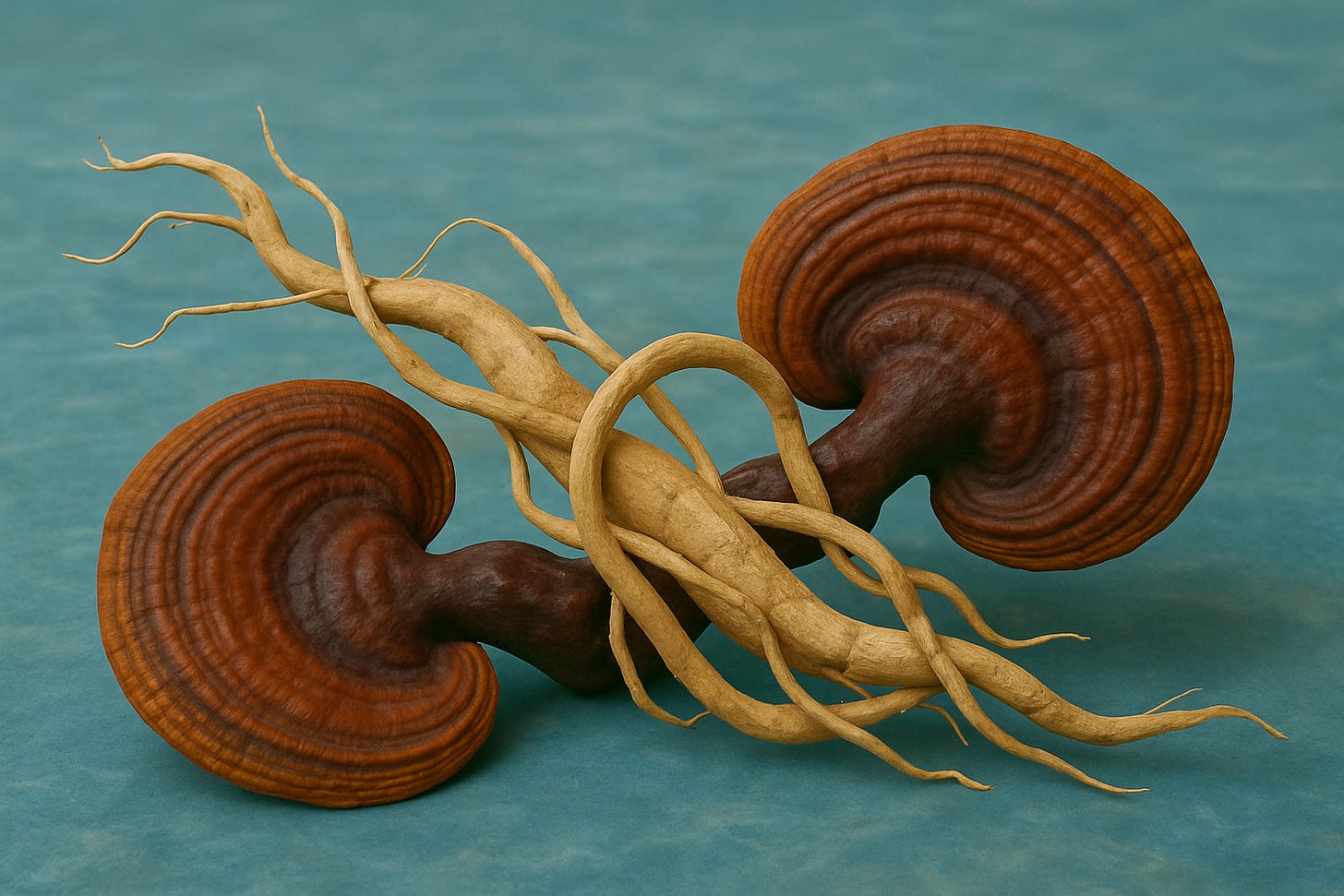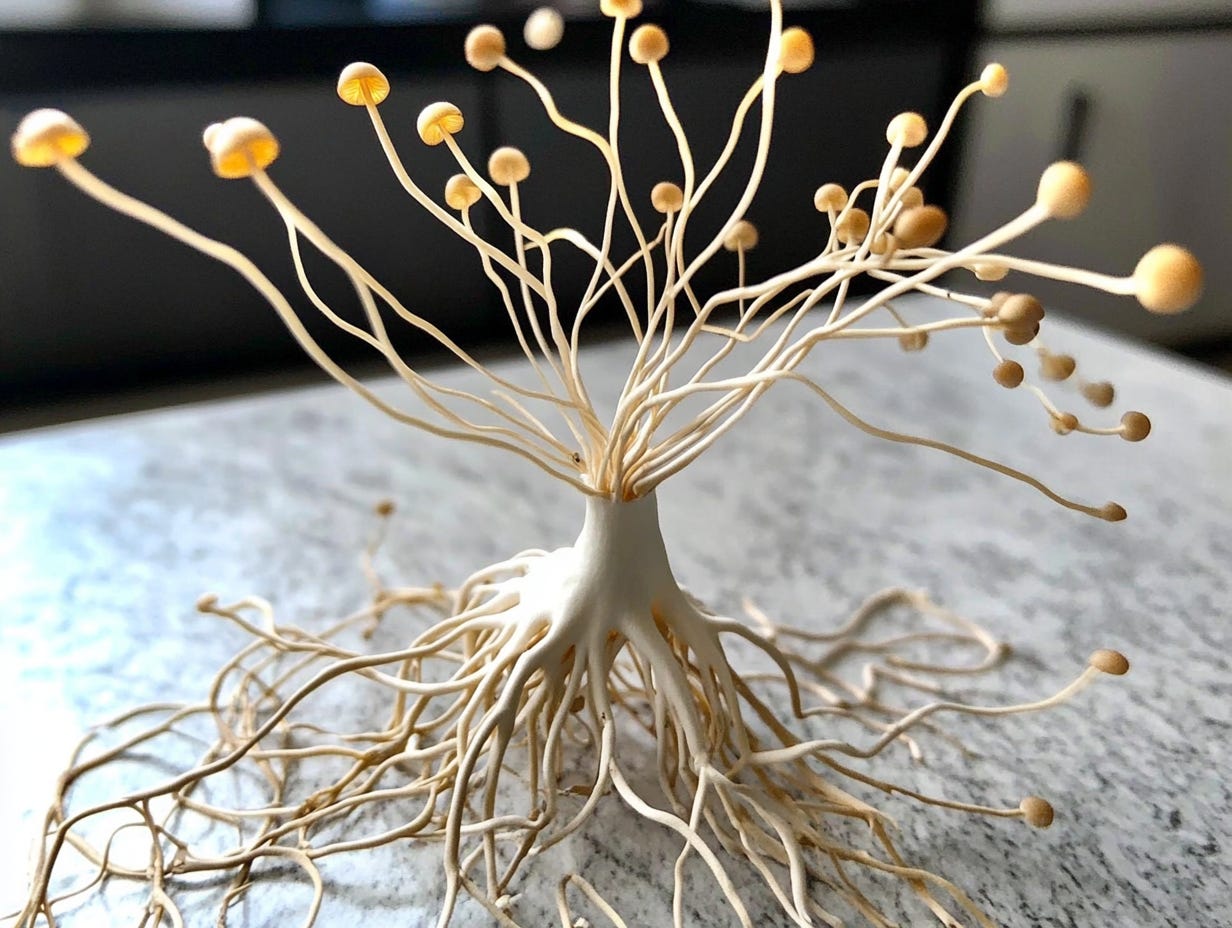Adaptogens are (still) trending.
And that’s good. And it makes sense.
To be called an Adaptogen is possibly the most prestigious classification a plant can land. This is because the relatively small group of plants titled adaptogenic combat one of today's largest challenges: stress — and its impact.
We often think of “stressors” as things that happen to us:
Flight delays, lab leaks, bills…
But there are actually three types of stressors on the body:
EXTERNAL EMOTIONAL STRESSORS
Moving, breakups, motorcycles…
EXTERNAL ENVIRONMENTAL STRESSORS
Hair dyes, car fumes, geoengineering with mercury (is this happening?)…
INTERNAL STRESSORS
Even slightly extended periods of: anxiety, loneliness, depression, insufficient sleep, poor elimination, congested bowels, bacterial or viral infections, yeast overgrowth, inflammation, heavy menstruation, hormonal surges or imbalances, overworked digestion, glucose spikes, adrenal fatigue, illness of any kind…
So yes, Adaptogens now and forever.
Adaptogens don’t work as most herbal medicines do.
They don’t target a single organ.
They don’t override symptoms.
They don’t stimulate or sedate in a fixed way.
They support homeostasis
—the body’s ability to find balance in the face of change.
Stress changes our physiology
And their superpower is non-specific resistance:
That means they increase the body’s resilience to all kinds of stress—physical, emotional, environmental—by helping regulate the systems that govern our stress response.
They don’t force change.
They respond to it.
That’s their genius—and that’s what they teach us.
HOW DO WE - BE THE ADAPTOGEN
PLANTS SUPPORT- BUT WE LEAD.
Your adaptogens will work for you - but you work for you more.
For many, change is hard and whole lives can be structured around the avoidance of it. When we experience stress through change, a whole army of defences—physical and emotional, conscious or unconscious—can flare, like an inflammatory response.
So yes, we can support our bodies with adaptogenic plants—but when we ourselves become more adaptive, to stress and to change, we lighten their load. We lead the way—accelerating our adaptation into evolution.
So what does it mean to be adaptive?
It’s an important question, I think—especially in these crazy times of great change. Some call it the greatest-ever shift in human evolutionary consciousness. Feeling it!
How do we cultivate non-specific resistance?
It’s an open question I’ve been pondering.
What I’ve come to is this:
It starts with being less concerned with the source of the stress—and more devoted to the shape we take in response.
And we have the tools, don’t we?
—our breath, our kindness, our presence, our self-care practices…
all the micro-movements that compound to support us to stay grounded in the face of great change and stress.
Our non-specific resistance could mean we don’t look over here and over there for the specifics of the stress—
rather, we tend to our response with self-love, trust, and faith.
Maybe adaptogens support us to remember:
it’s not what happens to us that defines us—it’s what we become in response.
Emily
xo





